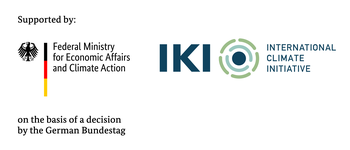
Call for Ideas
Article 6 and the Inclusion of ODS in NDCs
One of the critical findings from our recent exploration is that countries have the potential to include targets for ozone-depleting substances (ODS) in their Nationally Determined Contributions (NDCs). If countries were to engage in trading Internationally Transferred Mitigation Outcomes (ITMOs) involving ODS, it would be essential for both parties to have ODS targets included in their NDCs. Although theoretically possible, such transactions involve complex conditions and uncertainties that need to be addressed. Notably, obtaining corresponding adjustments is a crucial requirement for developing Article 6 projects. These adjustments, once approved by the involved countries, can significantly enhance the value of ITMOs by generating a price premium.
Given the complexities of integrating ODS targets into NDCs, project developers must thoroughly understand the national frameworks of the countries they are working in. Additionally, countries need to carefully evaluate which activities warrant the issuance of corresponding adjustments, as there is currently no one-size-fits-all approach to obtaining these adjustments.
Interaction between the Paris Agreement and the Montreal Protocol
The interaction between the Paris Agreement and the Montreal Protocol presents both opportunities and challenges for projects involving ODS and HFCs. While both treaties cover hydrofluorocarbons (HFCs), only the Montreal Protocol addresses ODS. The Montreal Protocol mandates the phasedown of ODS and HFCs, which has significant implications for the additionality of projects under the Paris Agreement.
However, the destruction of ODS and HFC banks is not mandated by the Kigali Amendment to the Montreal Protocol, which means these projects face fewer additionality concerns. On the other hand, projects involving the destruction of virgin gases, or the reclamation and recycling of gases may encounter additionality issues, as the Montreal Protocol's requirements would need to be considered in establishing baseline emissions.
Conclusions and Next Steps
These developments underscore the importance of innovative thinking and collaboration in advancing climate action under Article 6. As we continue to support these and other projects, we encourage all stakeholders to bring forward their ideas and insights. Together, we can drive meaningful progress in achieving the goals of the Paris Agreement, Montreal Protocol as well as Kigali Amendment.
We encourage continued collaboration to advance these and other critical initiatives. Stay tuned for more updates and opportunities to contribute to these critical efforts.
